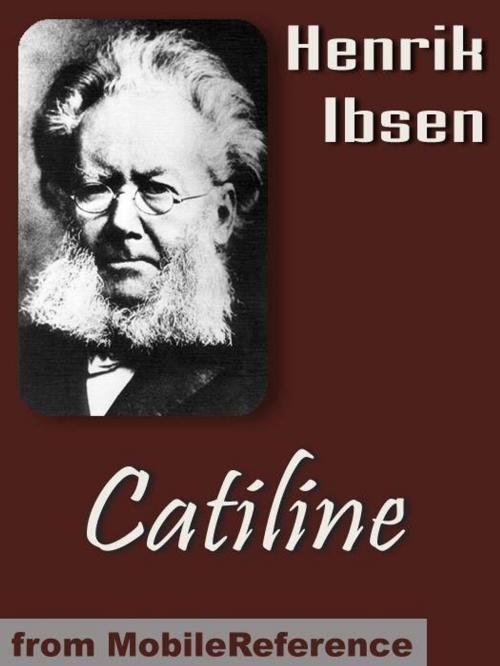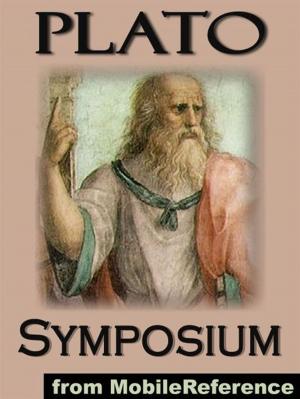Catiline (Mobi Classics)
Fiction & Literature, Drama, Continental European, Nonfiction, Entertainment, Classics| Author: | Henrik Ibsen, Andres Orbeck (Translator) | ISBN: | 9781607780670 |
| Publisher: | MobileReference | Publication: | January 1, 2010 |
| Imprint: | MobileReference | Language: | English |
| Author: | Henrik Ibsen, Andres Orbeck (Translator) |
| ISBN: | 9781607780670 |
| Publisher: | MobileReference |
| Publication: | January 1, 2010 |
| Imprint: | MobileReference |
| Language: | English |
Catiline or Catalina was Henrik Ibsen's first play. It was written in 1850 and first performed under Ibsen's name on December 3, 1881 at the Nya Teatern (New Theater), Stockholm, Sweden. The first Norwegian performance under Ibsen's name was at Det Nye Teater in Oslo on August 24, 1935.Forced to support himself after his father declared bankruptcy, Ibsen went to Grimstad as a pharmacist's apprentice. There he both prepared himself for university and experimented with various forms of poetry. While studying, he found himself passionately drawn into the Cataline orations by Cicero and chose this famous conspirator as the subject for his initial effort, writing Cataline in 1849. It appeared the next year in Christiania in the following spring under Ibsen's early pseudonym, Brynjolf Bjarme.The main character in this historical drama is the noble Roman Lucius Catilina, based on the historical figure of Catiline. He is torn between two women, his wife Aurelia and the Vestal virgin Furia. As characteristic of Ibsen's early work the play is metrical (iambic pentameter) in blank verse.Although Catiline is by no means Ibsen's best play, it foreshadows many of the important themes found in his later works. Catilina, full of doubts and torn between love and duty, is quite similar to characters in Ibsen's later plays, such as John Gabriel Borkman, and Halvard Solness in The Master Builder.Furia is also the prototype of some of the later female characters, such as Hedda Gabler.Ibsen was not the first playwright to dramatize the story of Catiline. Ben Jonson wrote a tragedy on the subject, called Catiline, His Conspiracy, in 1611. Excerpted from Wikipedia, the free encyclopedia.
Catiline or Catalina was Henrik Ibsen's first play. It was written in 1850 and first performed under Ibsen's name on December 3, 1881 at the Nya Teatern (New Theater), Stockholm, Sweden. The first Norwegian performance under Ibsen's name was at Det Nye Teater in Oslo on August 24, 1935.Forced to support himself after his father declared bankruptcy, Ibsen went to Grimstad as a pharmacist's apprentice. There he both prepared himself for university and experimented with various forms of poetry. While studying, he found himself passionately drawn into the Cataline orations by Cicero and chose this famous conspirator as the subject for his initial effort, writing Cataline in 1849. It appeared the next year in Christiania in the following spring under Ibsen's early pseudonym, Brynjolf Bjarme.The main character in this historical drama is the noble Roman Lucius Catilina, based on the historical figure of Catiline. He is torn between two women, his wife Aurelia and the Vestal virgin Furia. As characteristic of Ibsen's early work the play is metrical (iambic pentameter) in blank verse.Although Catiline is by no means Ibsen's best play, it foreshadows many of the important themes found in his later works. Catilina, full of doubts and torn between love and duty, is quite similar to characters in Ibsen's later plays, such as John Gabriel Borkman, and Halvard Solness in The Master Builder.Furia is also the prototype of some of the later female characters, such as Hedda Gabler.Ibsen was not the first playwright to dramatize the story of Catiline. Ben Jonson wrote a tragedy on the subject, called Catiline, His Conspiracy, in 1611. Excerpted from Wikipedia, the free encyclopedia.















